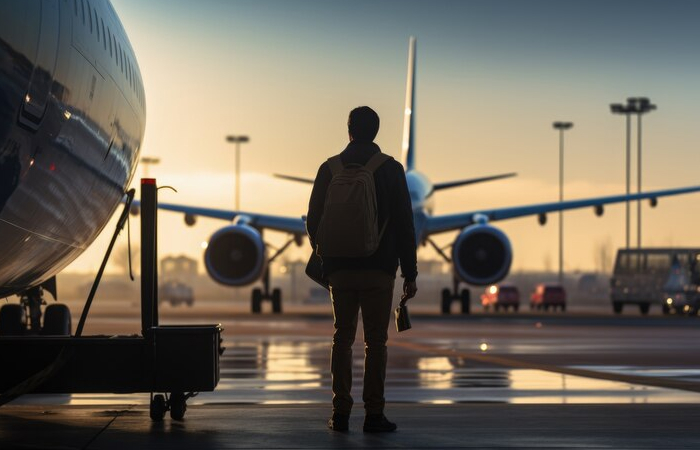The Role of Travel in Improving Communication Skills for Leaders

Travel is often seen as a way to escape the daily grind or to experience new cultures. But for leaders, travel can be much more than just a break from routine—it can be a powerful tool for improving communication skills. Whether you’re meeting clients across the globe or attending international conferences, traveling offers unique opportunities for growth in leadership, particularly when it comes to how we communicate with others.
In this blog, we’ll dive into how travel can enhance communication skills for leaders and why stepping out of your comfort zone is one of the best ways to sharpen your leadership abilities.
Why Communication Skills Matter for Leaders
Communication is at the heart of every successful leader. Whether you’re giving a speech, leading a meeting, or negotiating with partners, the way you communicate directly impacts your effectiveness. Great leaders don’t just speak—they actively listen, empathize, and understand the perspectives of others.
Strong communication allows leaders to:
-
Inspire and motivate teams
-
Build trust and rapport with clients or stakeholders
-
Influence decisions and outcomes
-
Navigate conflicts and misunderstandings
Improving communication skills doesn’t happen overnight, but it can be significantly boosted through travel. Let’s explore how.
1. Exposure to Diverse Cultures
When you travel, you encounter people from diverse backgrounds, cultures, and experiences. This exposure broadens your understanding of the world, helping you become more adaptable in communication. You learn that not everyone thinks the same way or communicates in the same style, and understanding these differences can enhance how you interact with people back home and abroad.
For example, in some cultures, directness is valued, while in others, a more indirect approach is preferred. Traveling allows you to recognize these cultural nuances, which will make you a more effective communicator in international settings. By adapting your communication style to fit different cultural expectations, you’ll also show respect for diversity—a critical leadership trait.
2. Improved Active Listening Skills
When you travel, especially to non-English speaking countries or places with unfamiliar customs, you often have to work harder to understand others. Whether it’s using a translator app or paying close attention to body language, these situations sharpen your active listening skills. As a leader, you quickly learn that good communication is not just about speaking clearly but also about listening intently.
Active listening allows leaders to understand their team’s concerns, gauge their emotions, and make more informed decisions. By experiencing different ways of communication while traveling, you can apply these listening techniques back in the workplace to build stronger connections with your team.
3. Expanding Your Vocabulary and Language Skills
Traveling to different countries often involves learning new phrases, idioms, and expressions. Even if you’re not fluent in another language, simply being exposed to it can improve your ability to express yourself clearly and concisely. In fact, learning the basics of a new language can boost your confidence in cross-cultural communication.
Having a broader vocabulary and understanding of various languages can also make you a more compelling leader. It shows your willingness to adapt and connect with others on a deeper level, which builds trust and rapport—key elements of effective leadership.
4. Building Empathy and Emotional Intelligence
Travel provides a unique opportunity to step outside your usual environment, making it easier to develop empathy and emotional intelligence (EQ). When you immerse yourself in unfamiliar cultures, you begin to understand the emotions and motivations of people who may think or behave differently from you. This experience can make you more empathetic to your employees’ struggles, challenges, and perspectives.
By learning to understand and manage your own emotions while navigating new environments, you also improve your EQ. Higher emotional intelligence helps you communicate with more sensitivity and awareness, making you more approachable and effective as a leader.
5. Sharpening Negotiation Skills
Whether you’re negotiating with suppliers, clients, or partners, the ability to communicate effectively is critical. Travel often involves negotiation, whether it’s bargaining in a market or working with international business partners. These real-world experiences help leaders hone their negotiation skills, teaching them how to find common ground, stay patient, and maintain a positive tone under pressure.
As a leader, the more you practice negotiation in various cultural contexts, the better you will become at handling high-stakes conversations. Effective negotiation requires clear communication, emotional control, and cultural awareness—all of which improve with travel.
6. Building Confidence in Public Speaking
Many leaders face public speaking opportunities, whether at conferences, seminars, or team meetings. Traveling to new places often forces you to step out of your comfort zone, giving you opportunities to practice speaking in front of diverse audiences. As you speak with people from different cultures and backgrounds, you build confidence in your ability to communicate across borders.
Travel-related public speaking experiences, whether formal or casual, help you develop a more dynamic speaking style and learn how to adjust your message depending on your audience. You become better at reading the room and delivering your message effectively, no matter who is listening.
7. Developing a More Open-Minded Perspective
Travel often challenges your preconceived notions and expands your thinking. As you interact with people from various walks of life, you learn to see situations from multiple perspectives. This open-mindedness is crucial for effective leadership. It helps you navigate complex situations and communicate in ways that resonate with diverse individuals.
Being a more open-minded leader enables you to foster a culture of inclusivity, where everyone feels heard and valued. This is a key part of being a leader who communicates effectively with all members of your team.
8. Improved Problem-Solving and Crisis Management
While traveling, things don’t always go according to plan. You may face unexpected delays, language barriers, or cultural misunderstandings. These experiences require you to think quickly and communicate clearly to find solutions. When you handle these challenges effectively while abroad, you build problem-solving and crisis management skills that are essential for leadership.
Traveling gives you the opportunity to practice thinking on your feet and adapting your communication style when faced with tough situations. These skills are directly transferable to leadership roles, where clear communication can be the difference between overcoming a crisis and failing.
Final Thoughts
Travel is not only about seeing new places—it’s a powerful tool for improving communication skills that can make you a better leader. By stepping outside your comfort zone and embracing new cultures, languages, and experiences, you can build stronger relationships, develop empathy, and become a more effective communicator. These qualities are essential for leading teams, navigating challenges, and inspiring trust.
So, next time you pack your bags, remember that the experiences you gain while traveling could be the key to unlocking your leadership potential.
